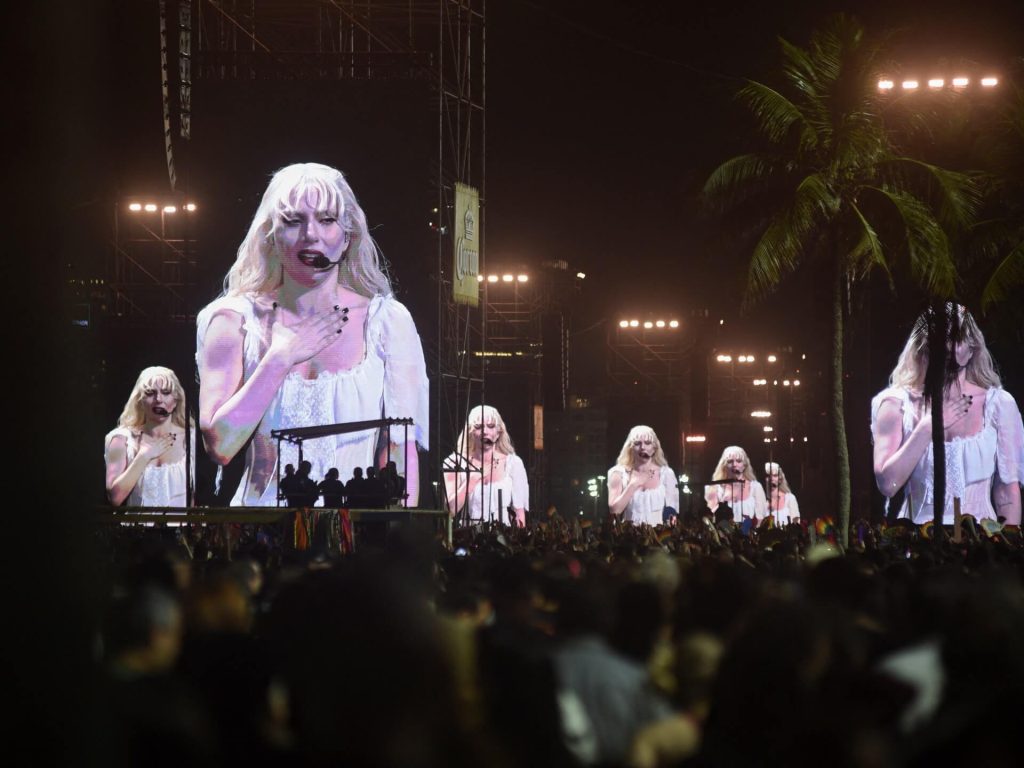World news
Brazilian Authorities Thwart Bomb Plot at Lady Gaga’s Historic Rio Concert
Unveiling the Threat: Operation ‘Fake Monster’
On May 3, 2025, Lady Gaga delivered a monumental free concert at Copacabana Beach in Rio de Janeiro, drawing an estimated 2.5 million fans. Behind the scenes, Brazilian authorities had successfully foiled a significant bomb threat targeting the event. Dubbed “Operation Fake Monster,” the effort was spearheaded by the Civil Police of Rio de Janeiro in conjunction with the Justice Ministry. The operation’s name cleverly referenced Gaga’s loyal fanbase, the “Little Monsters,” which the suspects exploited in an attempt to mask their extremist intentions. The swift and discreet actions of law enforcement ensured the safety of millions without disrupting the highly anticipated show.

The Extremist Network: Recruitment and Radicalization
Investigators revealed that the bomb plot was orchestrated by a radical online network that promoted hate speech and violence. The group specifically targeted minors, recruiting them through digital platforms and encouraging participation in planned acts of terrorism using Molotov cocktails and improvised explosives. Posing as part of Gaga’s fan community, the group used coded language and symbols to radicalize unsuspecting youth. The investigation underscored the evolving dangers of digital extremism and the cunning methods these groups use to infiltrate popular culture and exploit young audiences.
Law Enforcement Response: Arrests and Seizures
Leading up to the concert, police carried out extensive operations across multiple Brazilian states, including Rio de Janeiro, São Paulo, Mato Grosso, and Rio Grande do Sul. Authorities executed numerous search and seizure warrants. A man believed to be the group’s leader was arrested in Rio Grande do Sul for illegal possession of firearms. In a separate raid, a teenager in Rio de Janeiro was taken into custody on charges related to storing child pornography. Investigators also seized electronic devices and communication materials believed to be used in planning the attack. These decisive actions neutralized the threat and allowed the concert to proceed safely.

Ensuring Public Safety: Concert Proceeds Without Incident
Despite the gravity of the threat, the concert went on as scheduled without incident. Authorities made the calculated decision not to inform the public or the concert organizers about the plot until after the event concluded. This approach was designed to prevent mass panic and maintain public order during one of the largest concerts in recent memory. Lady Gaga’s team confirmed afterward that they were unaware of any danger during the performance. The successful security measures highlighted the effectiveness of coordination between federal and state agencies and their commitment to ensuring public safety.
Broader Implications: Addressing Online Extremism
The foiled plot has prompted serious discussions about the growing impact of online radicalization, especially among vulnerable youth. Brazilian authorities stressed the need for enhanced digital surveillance and public education to counteract the spread of extremist ideologies. The incident served as a stark reminder of how extremist groups can disguise themselves within fan communities to target unsuspecting individuals. Officials emphasized the importance of international cooperation, stronger content moderation on social platforms, and early intervention programs to prevent future threats. As digital communities grow, so too must the measures to protect them.
From customtrendygoods

